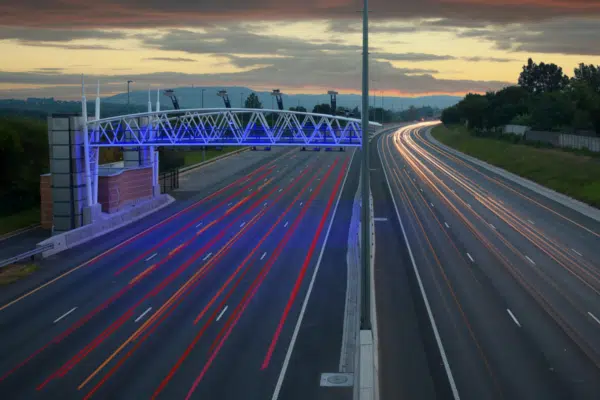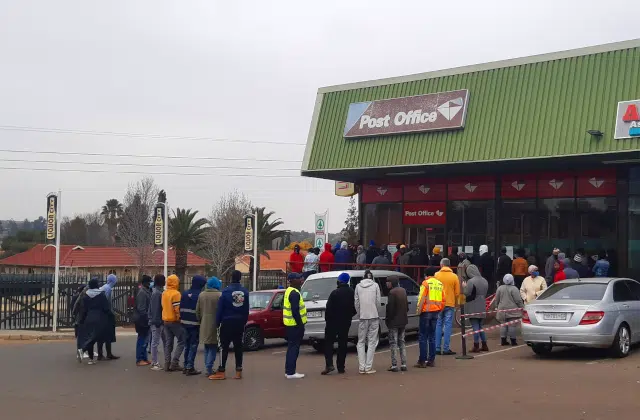
Big changes are coming for e-tolls – with final decision imminent
The South African National Roads Agency (Sanral) says that the long-delayed decision from the government on the future of e-tolls has remained a permanent pain point in its performance, noting that it has become dependent on government grants to fulfil its mandate.
Presenting its 2021/22 annual report, Sanral noted that the failed e-toll system has become a burden on its entire portfolio, despite only making up a tiny fraction of the roads under its purview.
Toll levies and borrowings on commercial capital markets have been the main sources of finance for the development, upgrading, repair, maintenance and operation of national toll roads managed directly by Sanral. These constitute some 7% of the national road network.
However, due to the under-collection of e-tolls on the Gauteng Freeway Improvement Project (GFIP), government assistance has become a significant supplementary source of funding for the toll portfolio over the past three financial years, it said.
“This is specifically for loss of revenue on the GFIP and is included in the toll portfolio as a subsidy. The GFIP represents less than 1% of Sanral roads,” it said.
In the 2021/22 financial year, Sanral was given R3.85 billion in the form of a GFIP grant, up from the R2.72 billion grant in 2020/21.
“The GFIP showed an increase of 25.6% in revenue to R569 million. This project is Sanral’s only toll route that receives government assistance,” the group said.
“This grant is intended to offset the discounts on tariffs instituted in response to public opposition to tolling on Gauteng freeways and to compensate for the loss of income while a decision on its future from the presidency is pending. The compliance collection rate remains very low at about 17%.”
The system has been met with resistance from road users since launching in 2013, leading to non-payment by many, and calls to scrap the system altogether. However, it has also proven detrimental to the government’s national road plans as it continues to drain money.
Conservative estimates are that only 15% to 20% of road users actually pay their e-tolls, and those who do pay are often businesses with large fleets that cannot afford to not comply.
Over the years, Sanral has tried several tactics to get road users to pay – from payment holidays and discounts to outright legal threats – but these have proven ineffective.
Changes are coming
While Sanral, along with the rest of the country, awaits an announcement from finance minister Enoch Godongwana in his budget speech next week on the future of the system, the roads agency is already making plans for its transformation.
In its report, the group outlined its plans to shift the e-tolling system to a value-added services system. While the investigations into this move were launched in 2019 already, the group put out a tender for such a system in August.
Sanral said that e-tolling could be potentially expanded into different projects to widen the scope of the toll portfolio and consider further value-added services (VAS) to maximise or ‘sweat’ its Transaction Clearing House (TCH) asset.
“The focus of services rendered shifts from pure toll-based services to public transport and related services. In this process, the e-toll account becomes a ‘mobility account’ that can be used nationally for payment of fares in public transport services, facilitating integrated fare collection and management,” it said.
“In addition, road users can use their mobility account and the toll customer service centres to renew vehicle and driver’s licences, pay for parking at the airport and commercial parking garages, gain access to secured areas such as offices and security estates, and, in the near future, make payment for fuel purchases from their TCH account.”
Sanral’s tender document also makes provision for its e-toll gantries to be used to track average speed over distance (ASOD) – a measure opponents to e-tolls have suggested the road agency take once the system is scrapped.
Promises, promises
The forward-thinking comes as a necessity after the group has been dropped and left in limbo by the government, and the Department of Transport in particular. Transport minister Fikile Mbalula has been promising an answer to e-tolls for years and has failed to deliver at every turn.
He last promised a final outcome to e-tolls would be announced in the Medium-Term Budget Policy Statement, due to be delivered on Wednesday, 26 October 2022.
However, any decision on e-tolls – whether it is scrapped entirely, or transformed or reworked – comes with the huge caveat that South Africans will still have to pay for the system in one form or another.
Mbalulua previously warned that the debt attached to the scheme has to be paid whether the system is active or not.



